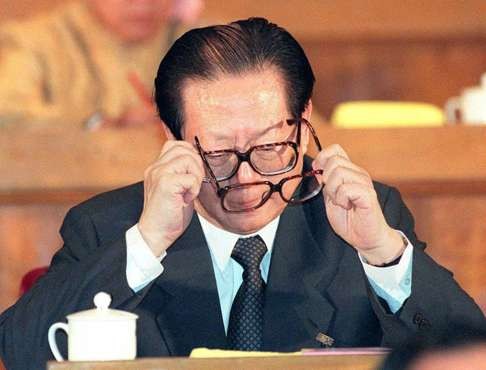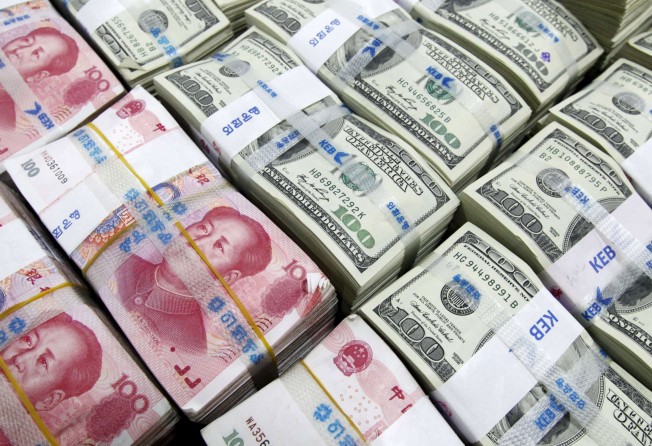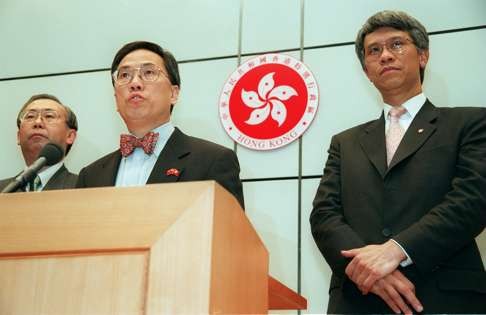
Back to 1997? Why Chinese yuan and Hong Kong property prices may go down by a fifth next year
CLSA says China will end its currency’s unofficial peg to the US dollar, unleashing widespread market havoc

China is likely to “de-peg” the yuan from the US dollar in the second half of 2017, leading to a sharp depreciation of the currency and dealing a severe blow to Hong Kong’s property market, brokerage and investment group CLSA said in a report on Friday.
The de-pegging will cause the yuan to fall 19 per cent by the end of next year and knock off Hong Kong property prices by a fifth, in a throwback to the housing crisis and deflation in 1997, said Amar Gill, head of Asia Research at CLSA.
“The overall trend is declining for China’s foreign exchange reserves since the second half of 2014. And the drivers for capital outflow remain...It is too early to say that China has reached the peak for capital outflows. In fact, we are to see continued outflow of capital from the economy in the next six months” said Gill.
Chinese authorities tightly control the movement of the yuan against a basket of currencies, heavily weighted to the US dollar, in what some analysts call an unofficial peg. Defending this peg has taken a toll on China’s fabled foreign exchange reserves in recent months.
If China’s forex reserves decline by US$50 billion on average every month, which has been roughly the case for the past 18 months, it would shrink below US$2.75 trillion around the middle of 2017, CLSA estimates.

That would be very close to the minimum forex reserves level recommended by the International Monetary Fund of US$2.5 trillion, Gill said. He added that China by then would have to abandon its defence of the exchange rate and allow a free float to introduce market-based pricing.
The yuan’s depreciation against the US dollar seems to have eased this year. Analysts broadly attribute that to the weakening of the US dollar, a trend that may reverse if the US Federal Reserve effects another interest rate hike in the middle of this year as the country’s economy begins to look up.
But few are as bearish as CLSA.
Iris Pang, senior economist with Natixis, said the Chinese central bank still has considerable control over yuan’s trajectory.
“As long as Beijing can manage investor expectations for the yuan, it can manage the outflow pressure. I am not expecting a dramatic devaluation of the yuan by 2017,” she said.
“China certainly would tighten up control of the capital account if the outflow pressure persists. But it is impossible for China to close the capital account,” said Gill, saying that in such a scenario, the overall negative impact would be even bigger than the depreciation of the yuan.
Experience of other countries where currencies have de-pegged from the US dollar suggests that the local currency declines by more than 25 per cent, at least initially. CLSA expects the yuan to drop to 8 against the US dollar by the end of 2017, and head back to 7 by mid-2018 as it finds fair market value.
The pressure will spill over to Hong Kong, Gill said, resulting in a replay of the 1997 currency crisis that brought the Hong Kong dollar peg to the US dollar under attack.
He said the Hong Kong Monetary Authoritywould defend the currency pegby buying Hong Kong dollars with its HK$3.479 trillion Exchange Fund.

But efforts by the monetary authority to absorb Hong Kong dollar from the commercial banks onto its own balance sheet would lead to tighter liquidity and higher interest rates.
The scenario envisaged by the CLSA in the immediate aftermath of the de-pegging may last six months before easing off, when pressure on the yuan fades, Gill said.
“Also, as Hong Kong keeps the peg, assets in this market becomes even more expensive, considering the neighbouring markets, including mainland China and Singapore, which is weakening its currency. That’s why property prices are to see an adjustment and drop by 15 to 20 per cent,” Gill said.
Australia and North Asia, which have substantial trade with China, will be most vulnerable to the yuan’s “de-pegging” against the dollar. India, with the least exposure to China, will be the least impacted, CLSA said.
Highly leveraged industries in China, including airlines, utilities, resources, shipping,
and properties will experience volatily during the de-pegging process.
Chinese banks will suffer deposit flight, rising non-performing loans and lower net interest margin, the report said.